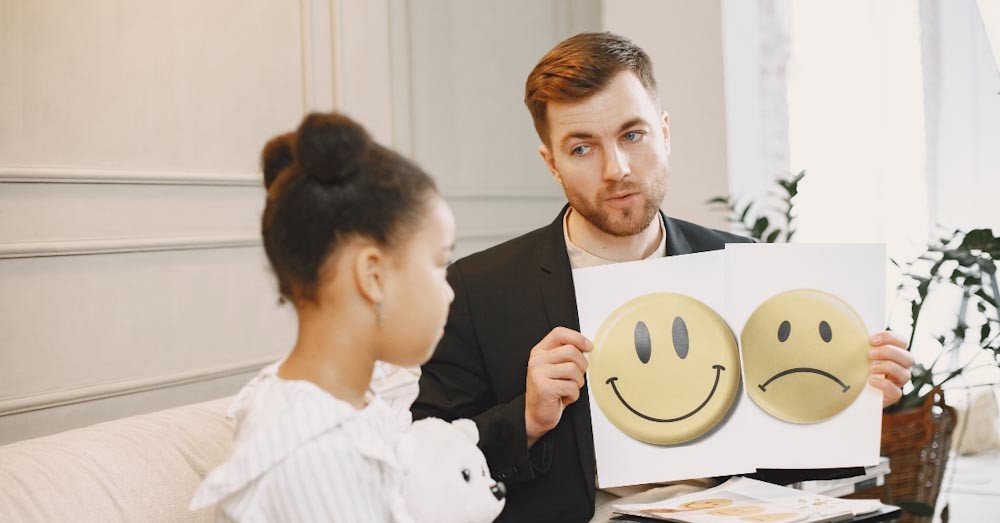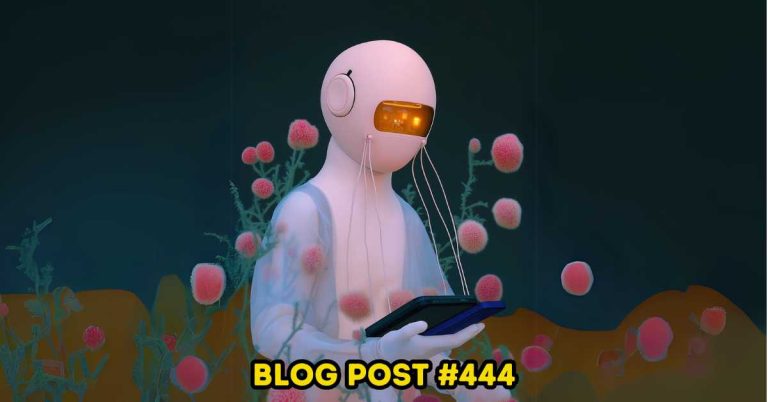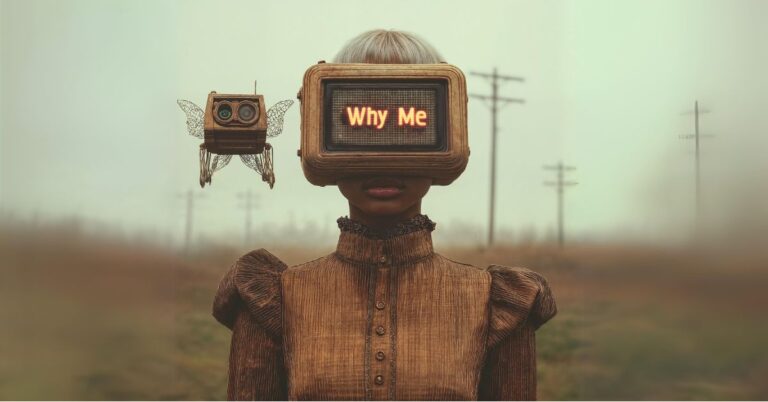
People often say, “I want happiness” or “I want to be happy.” But why do we say we want “happiness” rather than love, joy, satisfaction, wellness, well-being, or any other emotion? Sure, we want all these feelings too, but we place happiness above everything else.
Aristotle famously suggested that happiness is the #1 goal of life and that everything we do is for the sake of happiness. Many of his contemporaries agreed. Yet, like Aristotle, we refer to “happiness” rather than any other specific emotion. This sentiment is echoed in countless commercials promising happiness if we buy their products.
Indeed, our society is obsessed with happiness, yet almost no one can agree on what it is or how to achieve it consistently. Happiness has become something mythical—an elusive ideal we all strive for, yet few know how to attain or sustain.
I mean, people certainly have many ideas about what happiness might be. A public poll I conducted suggests it involves things like cars, money, relationships, mindfulness, gratitude, a sense of purpose, and more—with many arguing that happiness means something different to everyone.
Yet, while we each pursue happiness in our own way, the world faces a mental health epidemic, which I believe to be connected to our collective inability to define happiness. After all, if we don’t know where we’re going, we keep changing direction every five minutes, how will we ever arrive where we want to be? It’s like trying to be healthy by eating everything in sight, hoping something will work. Or setting off on a road trip with no map, no destination, and no fuel gauge, just driving in circles, hoping to stumble upon somewhere meaningful.
And that’s the problem. If random attempts at happiness could make us happy, we would already be happy. After all, we live in a world of 8 billion people, in one of the wealthiest and most technologically advanced societies in history, so if there were a foolproof way to achieve happiness, we would have found it by now.
Yet, as the mental health crisis deepens and the demand for therapists skyrockets—with antidepressant sales at an all-time high—most people continue to struggle with negative emotions. This paradox leads many to believe that happiness is impossible, that it’s the wrong goal, and that we must simply accept the world as it is.
So, here are the pressing questions:
- Was Aristotle wrong to suggest that happiness is the ultimate goal?
- Was he mistaken in claiming that everything we do is for the sake of happiness?
- Is happiness truly an impossible goal? If so, why even try?
- Why would evolution or God program us to seek happiness if we can never achieve it?
Of course, if you know my story, you know I faced depression at 25 and decided to change my life for good. Through that journey, I became one of the happiest people in the world. A key part of this transformation was finally defining happiness—which is exactly what we’ll explore in this article.
What Is Happiness? A Short and Simple Definition
First, I want to provide a concise definition of happiness for those in a hurry who don’t have time to read the entire article. However, I should warn you: this definition might feel a bit too short for some. But there’s logic behind this approach. Just as Einstein’s formula E=mc² is a simplified, abbreviated representation of a much deeper concept, this definition of happiness is similarly condensed. In reality, the full “formula” for both energy and happiness is far more complex. To truly understand them, we need to explore their individual components.
With that said, here’s the short and simple definition of happiness:
Happiness is a positive emotional state connected to our long-term well-being.
I can already hear some of you asking, “But where are my cars, money, relationships, mindfulness, gratitude, and life’s mission in this formula?” To address this, let’s expand the definition by breaking down why specific words were chosen to describe happiness. Happiness is:
- An emotion
- A positive emotion
- Best experienced over the long term
- Connected to our sense of well-being
1. Happiness is an Emotion

When we say that happiness is an emotion, we are contrasting the experience of happiness with logical and rational thoughts. Here, we can’t simply state “I’m happy,” because technically speaking, we can say anything—even things that are not true. Instead, we need to feel happiness.
In this way, buying a brand-new car may sound like a great idea—logically speaking—because we might believe it will make us happier, especially when every ad suggests this is true. However, in practice, the joy of owning a new car can fade quickly after the purchase, with studies on hedonic adaptation suggest that the process of adjusting to—and moving past—the temporary emotions tied to owning something new can be surprisingly fast. So, be careful!
2. Happiness as a Positive Emotion

When we say that happiness is a positive emotion, we are contrasting it with negative feelings. In this context, happiness encompasses the entire range of positive experiences—such as fun, excitement, joy, love, contentment, and tranquility. All these positive emotions collectively form what we call happiness. In other words, happiness isn’t just one emotion, it is a spectrum of positive experiences. So, when someone says, “I want to feel happy,” they mean they want to experience this range of positive emotions—and avoid negative ones, such as boredom, anger, sadness, loss, grief, and loathing, which we collectively refer to as “unhappiness.”
This often confuses people because they assume happiness is a single, standalone emotion. However, here’s an exercise to show why this isn’t the case—and why, above all else, we insist on wanting “happiness” rather than any other specific emotion. Think about positive emotions like excitement, joy, love, contentment, and tranquility, or negative ones like boredom, anger, sadness, loss, grief, and loathing. Can you imagine how each of these feels? Now, try to visualize happiness itself. How does it feel? The reason it might be harder to visualize happiness or unhappiness is that they are not as concrete as individual emotions. If you can visualize yourself as happy or unhappy, it’s likely because you’re imagining specific positive or negative emotions—and then generalizing them under the broader labels of “happiness” or “unhappiness.”
3. Long vs. Short-Term Happiness

Historically, many people have understood the link between short-term pleasure and the positive emotions it provides. Consequently, they reasoned that one could achieve happiness by making this pleasure continuous and endless. In many ways, this mindset gave rise to modern civilization (and many past civilizations as well) where people act as emotional junkies, chasing as much short-term pleasure as possible in the hope that it will accumulate into long-term happiness.
However, as we know, short-term pleasure does not always lead to long-term happiness. In fact, it often results in the opposite: unhappiness. For example, drinking may be enjoyable in the moment, but the next day brings a hangover—far less pleasant. Even worse are the long-term health effects of alcohol and the financial strain of paying for it. The same logic applies to many other short-term pleasures, such as gambling, smoking, drug use, procrastination, overeating, and more.
Yet, countless individuals find themselves consumed by these habits, often surprising even themselves. Meanwhile, professionals express frustration at the state of the world, while billion-dollar corporations ensure these products are readily available in every store across the country.
Conversely, the alternative to indulging in short-term pleasures lies in long-term actions—such as saving money, pursuing tranquility (and thus spirituality), exercising regularly, and eating healthily. These activities require effort and discipline. While they may not provide immediate emotional stimulation, they build a stronger foundation for life. They lead to a more balanced existence, a clearer mind, greater creativity, and overall well-being.
In other words, happiness is a state we want to experience not just occasionally, but consistently over the long term. When we say, “I want to be happy,” we mean we want to sustain positive emotions. This state is independent of short-term stimuli, it exists regardless of whether it’s raining, people are shouting, or the world seems on the verge of chaos. True happiness comes from within and remains unaffected by external circumstances.
Of course, some may argue that this isn’t always possible, and to an extent, they are right. However, it doesn’t have to be true all the time. Too often, people allow virtually everything to affect how they feel. They lack self-control, and even minor inconveniences—like a broken nail or a rainy day—can ruin their mood.
Naturally, we all want to enjoy every moment as much as possible. Unfortunately, in many aspects of life, short-term pleasure is fleeting and easily forgotten. Meanwhile, a healthy body, mind, and financial stability provide a far stronger foundation for long-term happiness.
4. Happiness and Well-Being

This long-term happiness is deeply tied to our overall sense of well-being. By this, we mean our general assessment of how good or bad we feel about our lives—moment to moment, hour to hour, day to day, and year to year.
For example, we might say:
“Today was a good day, but this week was quite challenging.” or,
“I enjoyed the sun yesterday, but today it’s raining.” Or even,
“This year I traveled, but before that, I worked at a job I hated just to afford the trip.”
In this way, our well-being is simply the sum of the positive and negative moments we experience, evaluated across different time scales. We can even quantify it:
“Today, 80% of my emotions were positive, so it was a good day,” or
“This week, I only enjoyed myself 50% of the time, so it was a bad week.” Or,
“Over the past few years, my life has generally been good, so I’d say I have a good life.”
Here’s the key insight: Optimal Happiness teaches people to be happy 99% of the time—a goal many consider unrealistic. But since we ultimately control our minds, we can train ourselves to be happy more often than not. So why not aim to be happy most of the time?
Yes, this might sound delusional—but it’s a targeted delusion, one that pushes us toward living a better life. It’s important to note that it’s completely reasonable to feel unhappy 1% of the time. However, anything more isn’t necessary or recommended by the science of happiness. Research shows that the benefits of happiness far outweigh the reasons to feel unhappy—if for no other reason than happiness feels good and unhappiness feels bad.
So, we can learn to maximize happiness. We can learn Optimal Happiness.
What Is Happiness: A Long & Comprehensive Definition
Now, it’s time to provide a full definition of happiness. But first, we need some historical context.
Historically, happiness was often seen as a combination of luck and divine blessing. In his work Leviathan, Thomas Hobbes famously described life in a “state of nature” as “solitary, poor, nasty, brutish, and short.” This suggests that our ancestors faced constant hardship, leading to the assumption that they were predominantly unhappy—a perspective that contributed to an “unhappiness bias” (though this assumption is debatable, a discussion for another time). What matters here is that happiness was rare, experienced only during festivals or other celebrations, or reserved for a privileged few (usually the wealthy), who were believed to be blessed by God.
Our ancestors dreamed of a future where people would always have enough to eat, where most diseases would be eradicated, where life would be celebrated daily, and where leisure would be a regular part of existence.
Today, we live in what would have been their utopia. But if you asked most people whether they believe we live in a utopia—or whether they are happy—the answers are likely to be “no.” After all, we face a new set of challenges, including the mental health epidemic we’ve already discussed.
In today’s world, almost everything is linked to happiness: buying a car, seeking loving relationships, even eating. Even preferences like “I like my t-shirt in red, and you prefer black” reflect a desire for individuality—and, by extension, happiness, which leads many people to believe that every person claims a unique definition of happiness.
If we accept this, we could say there are 8 billion definitions of happiness—one for every person on Earth. But this isn’t practical, as we’ll never agree on what happiness is or how to increase it, as there will always be someone who can always say, “But this isn’t happiness for me.” This is why we need a universal definition—a definition that encompasses all 8 billion individual interpretations. If your definition includes ice cream, travel, and the search for meaning, then this universal definition should include those too.
This is why I define happiness as follows:
Happiness is a positive emotional state, distinct from negative emotions or rational thought, rooted in how we actually feel—not just what we believe should make us happy. Subjective by nature, it encompasses all positive experiences, such as joy, love, and tranquility, while negative emotions like boredom, hatred, and distress fall under the broader category of unhappiness. Ultimately, happiness reflects our long-term well-being, measuring how often we experience fulfillment and genuine enjoyment in life in all its moments.
As you can see, we haven’t mentioned one’s wealth, car brands, relationship status, social media following, or other external factors—because while some people prioritize these things, others do not. Everything in life can influence our sense of happiness, but it might not, or it could even produce the opposite of the desired effect. Ultimately, happiness comes down to how we feel about our lives, reflecting how we choose to live them. It’s a matter of mind over matter, where our perceptions shape our existence.
This is a point I keep driving home: we all want happiness, yet we so often fixate on the wrong things—believing they should shape or transform our happiness, when in reality, they don’t. The result? We end up trapped in a society that feels utterly insane, where people chase happiness in distorted, self-defeating ways. And no matter how hard they try, most never find lasting happiness because they’re focusing on all the wrong things.
And this is also why this definition may still differ from countless others around the world. After all, there are as many definitions of happiness as there are people. So it’s no surprise if you hear something similar—or different. What matters is not the exact wording, but the shared understanding that when we talk about what we want from life, we’re talking about happiness.
Now that we’ve defined happiness, we can turn to the next question: How do we achieve it?
The How of Happiness
It is in our human nature to want to be happy—we are biologically and psychologically wired for it. Yet, all too often, we end up stressed, anxious, and depressed. Most people don’t know why this happens and can’t solve this seemingly impossible puzzle. They assume, once again, that happiness is impossible, that it’s the wrong goal, or—because of the already mentioned unhappiness bias—that human beings were never supposed to feel happy most of the time. Instead, they chase productivity, fulfillment, love, or other goals, forgetting that everything we do is ultimately for the sake of happiness.
This suggests a simple truth: if it’s possible to go directly for the end goal, we should. And I can guarantee you that it is possible—incredibly so. I became one of the happiest people in the world, not to brag, but to show you that if someone like me can do it, so can you.
If you don’t know where you’re going, any road will take you there. So the first step becomes to define what we’re looking for, which is happiness. We did this in this article. I admit this definition may not be what most people expected, as it challenges their beliefs about what they should be striving for. But it also implies that to truly find happiness, we might need to live our lives a little differently.
After defining happiness, the next step is to understand why happiness is important, which I did in great depth in my book Optimal Happiness. This is often confusing for people. They might say, “I get that it’s important,” but then act in ways that don’t prioritize their well-being. They embrace negative emotions and revert to self-sabotage instead of learning how to cultivate happiness.
Then, there’s the “how of happiness”—a collection of the best tools, tips, and strategies designed to help us craft the best life possible. This is a life filled with pure joy, passion for living, and the ability to thrive regardless of who we are, where we come from, or our current circumstances. I’m talking about a utopian and unconditional happiness—the kind we all desire and can achieve if we choose to. And this state is entirely within reach, too. And why shouldn’t we strive for it? We only live once, so we should embrace it fully and claim the happiness we deserve.
I’ve written an entire book on the “how of happiness” and created programs to help people achieve this goal in the fastest and most effective way possible. This means we can’t address this topic meaningfully in a single blog post. So, I highly recommend exploring this website’s offerings to learn more about how you can be happy.
Stay happy, now that you know what you’re looking for!















10 thoughts on “What is Happiness? The #1 Best Definition of Happiness”
Pingback: What is Ikigai? & What Does It Mean to Have One's Ikigai?
Pingback: What is Optimal Happiness? Plan, Mission, and Purpose
Pingback: Happiness AI: What is Happiness According to AI
Pingback: Happiness by Design by Paul Dolan (Book Review)
Pingback: Are Celebrities Happy? How To Be Happier Than a Celebrity
Pingback: I've Read 100+ Books on Happiness. Here is What I Found
Pingback: Happiness Is Not Individualistic - Optimal Happiness
Happiness 😊
Happiness is all about good relationships. https://greatergood.berkeley.edu/article/item/what_the_longest_happiness_study_reveals_about_finding_fulfillment. Or is it fair to say that we might want to bring in the word fulfillment? If you have kids, studies say this often makes you unhappier compared to people who don’t, and can use their resources to have more fun and not have to wake up again at 3am on a work day. But parents will often tell you that they nevertheless feel more fulfilled and would not exchange it for anything.
Great point, as relationships and fulfillment are indeed fundamental parts of the human experience. However, from my personal experience, I’m forced to wonder why people are still unhappy even if they have great relationships, money, power, etc. After all, we are living in the most technologically advanced society the world has ever seen, so if we ever had the tools to be happy, it’s today. Indeed, we have the tools to be happy, but the vast majority of people don’t know what they are, and therefore they are struggling with their unhappiness. It’s sad to see their suffering, which is completely unnecessary, especially given that there is an alternative. This is the message of my blog, book, and practice. Thank you for your support with a kind message and relevant information.